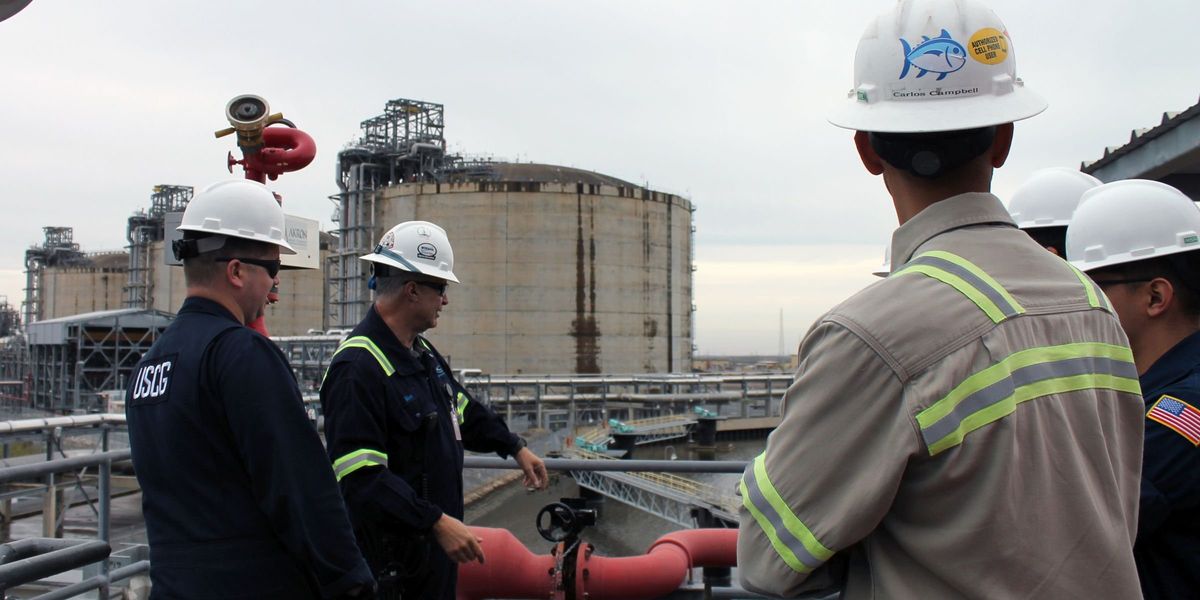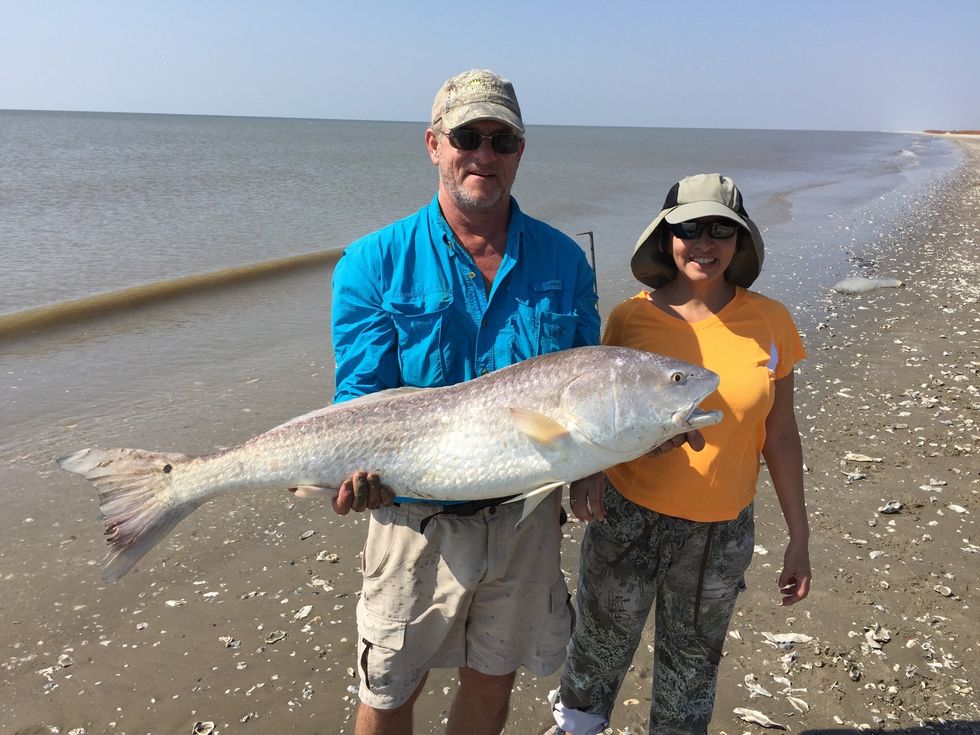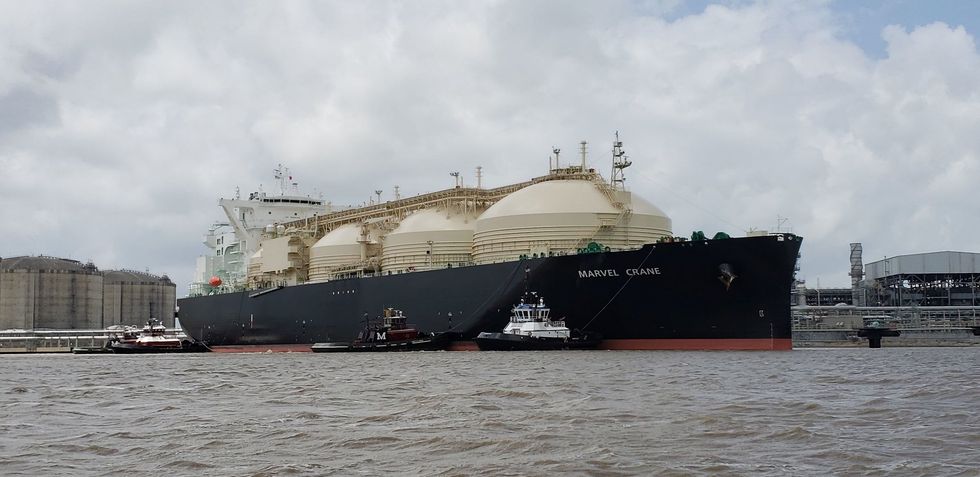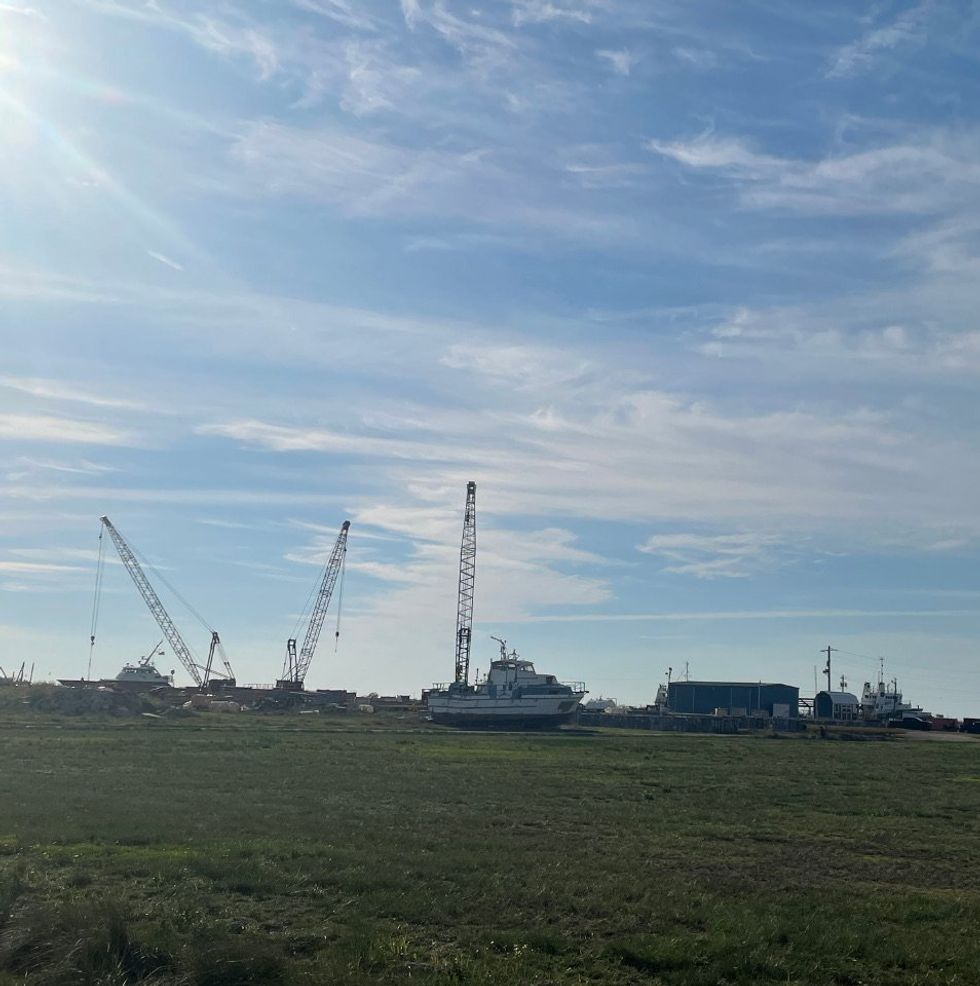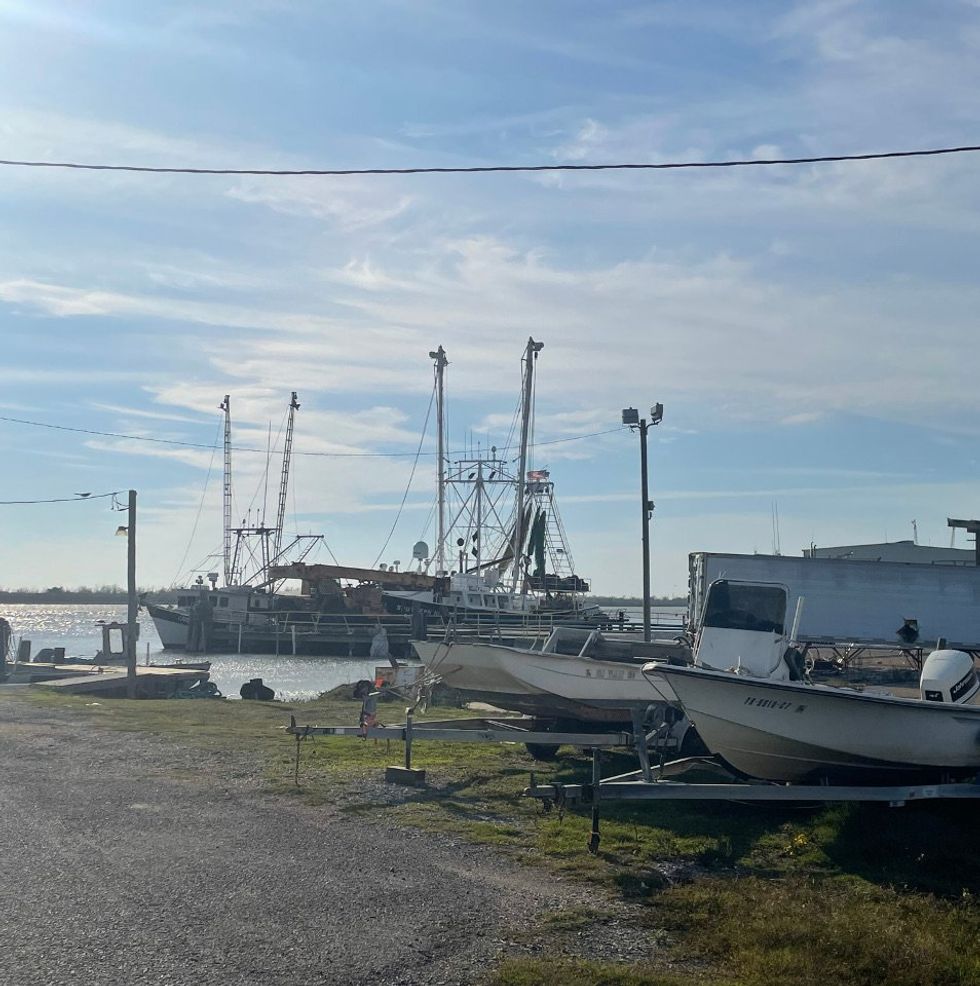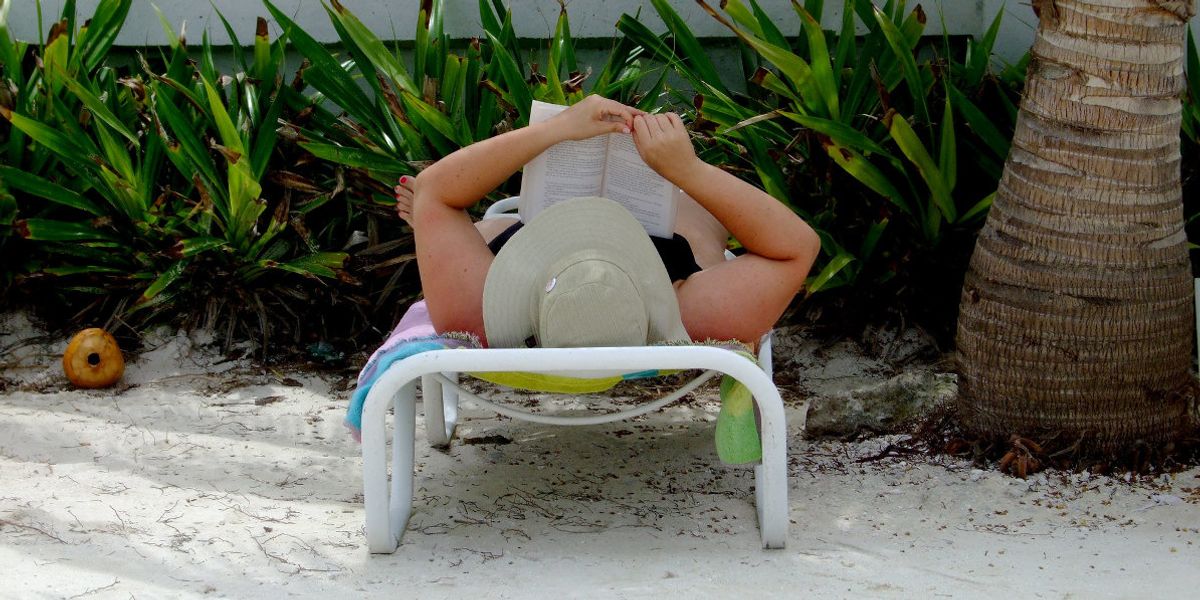
Our annual summer reading list, 2020 edition
EHN staff shares their top book recommendations for the summer.
It's that time of year again—summer is in full swing as we head into the Fourth of July weekend.
Of course, the world looks much different since our last summer reading list—but the power of the book remains.
We spend a lot of time writing, reading, and sifting through environmental news, so our book choices reflect our need to expand our horizons. Most have at least a tenuous environmental link, but the list is much more than pollution and planetary plight.
Whether you're looking to learn, kill time, or escape the deluge of bad news, check out what our staff has been reading.
Enjoy the list and feel free to send us some of your suggestions.Douglas Fischer's picks: The Great Influenza, by John M. Barry and This is Happiness, by Niall Williams
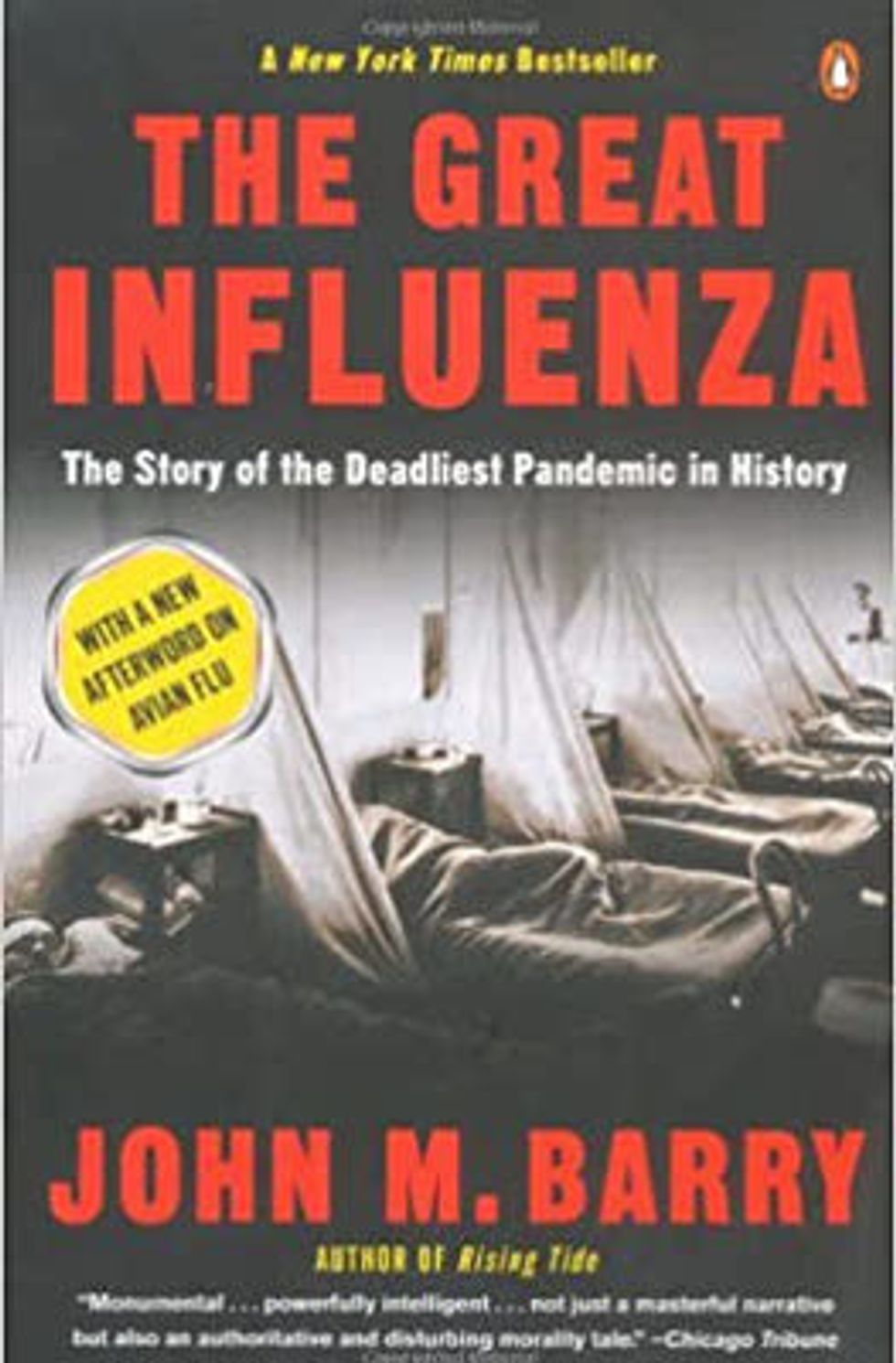
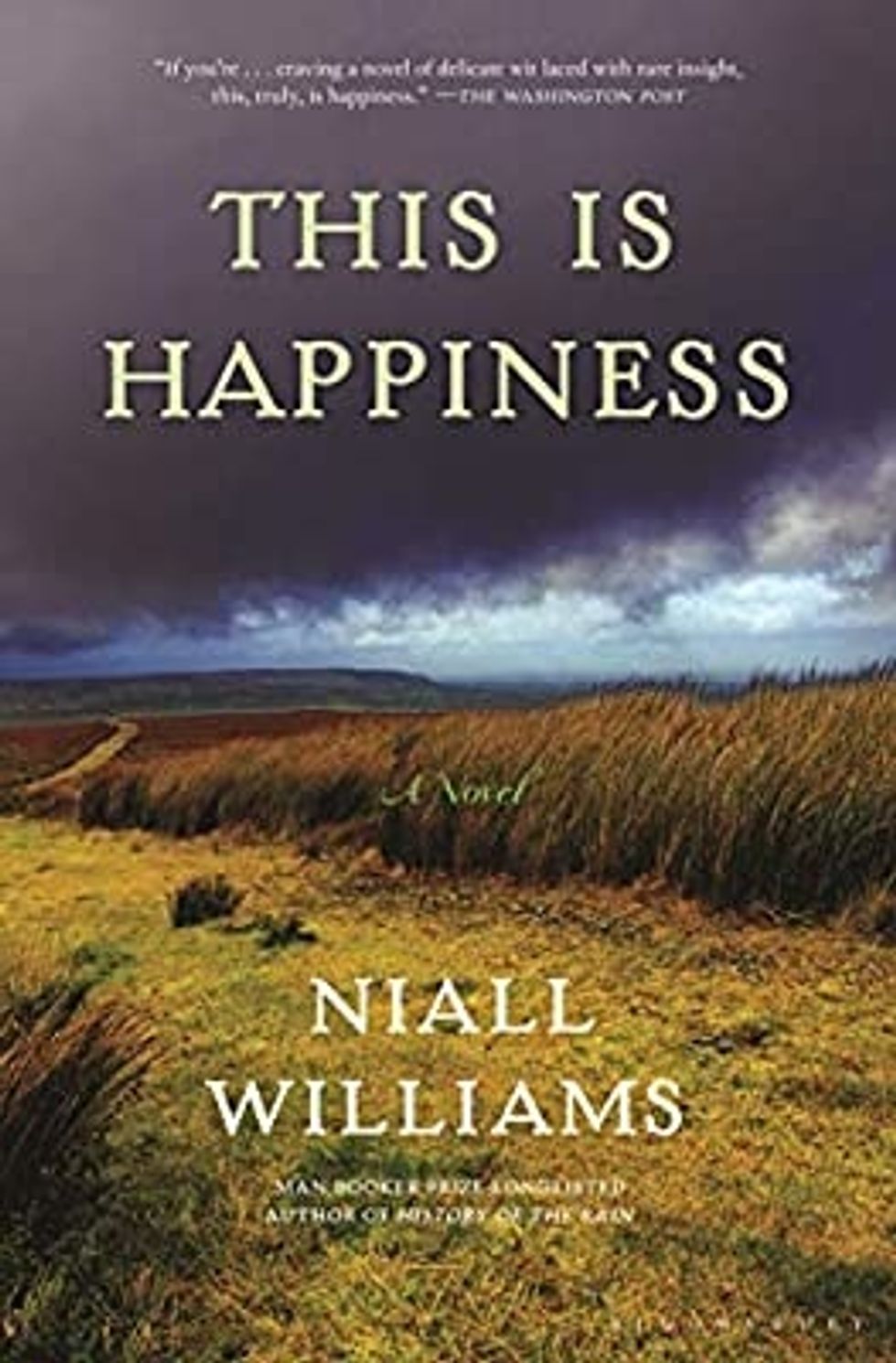
The Great Influenza, by John M. Barry
Not your typical summer read, but then we're not having a typical summer by any metric. This history of the 1918 influenza outbreak – the most lethal on record, with 100 million killed worldwide – gives essential context for today's coronavirus pandemic.
Barry's chronicle starts with the birth of modern medicine, a surprisingly recent event. He holds us for a while in the military cantonments that sprouted across America during World War I – the initial launching pads for this global scourge so misleadingly labeled the "Spanish flu."
The story's relevance becomes vividly, tragically, depressingly clear after Barry carts us past the carnage in cities and civilian life: Political corruption, malfeasance, ignorance and indifference at the highest levels of government allowed the 1918 epidemic to swirl out of control. You're left mourning a senseless waste of humanity and lives. And that doesn't feel all too different from today.
This is Happiness, by Niall Williams
Set aside the soppy title. Lose yourself in rural Western Ireland, ca. 1950, before power and phone lines came to the land and life changed forever. Williams carries you forward in an lyrical coming-of-age tale that weaves color, tone and language together in ways I cannot begin to do justice describing.
The story and the magic rests in 17-year-old Noel Crowe's transition from late childhood to early adulthood over the course of one summer – a summer where the rain stopped, rain that "came straight down and sideways, frontwards, backwards and any other wards God could think of," unexpected sun poured forth, and love bloomed.
What makes this relevant for our (nominally) environmental book list is Williams' wry commentary about changes modern power and lighting bring to life, and what is forever lost in that transformation, and the value – and futility – of standing fast against that.
Kristina Marusic’s pick: Toms River, by Dan Fagin

Toms River won a Pulitzer Prize in 2014. I'm just getting around to reading it, but it feels as timely now as ever.
The book explores the history of the small New Jersey town of Toms River and the related history of the global chemical manufacturing industry.
In gripping, lyrical prose, Fagin carries readers on a journey through the town's early days as a refuge for pirates, then to London to witness the inadvertent discovery of chemically-derived fabric dyes by a chemist who was trying to find a malaria cure in 1856.
From there, Toms River follows the fabric dyeing industry's evolution throughout Europe, documenting its journey all the way to Toms River, where one company's plant transformed the local economy in the 1950s—before the U.S. had meaningful environmental protections on the books. The story culminates in the present-day fallout of that industry's devastating contamination of the local water table and the resulting sickening of residents, who were left to untangle the threads of what had gone wrong.
The story feels especially powerful because it's apparent that what happened in Toms River could have happened in any American town—and likely has happened in more places than we know. Revisiting the lessons we've already learned in our relatively short history as a nation about the impact of industrial manufacturing processes on human health feels especially poignant now, in an era when even our most basic health-protective environmental regulations are under threat of being rolled back.Brian Bienkowski’s pick: American Pro: The True Story of Bike Racing in America, by Jamie Smith
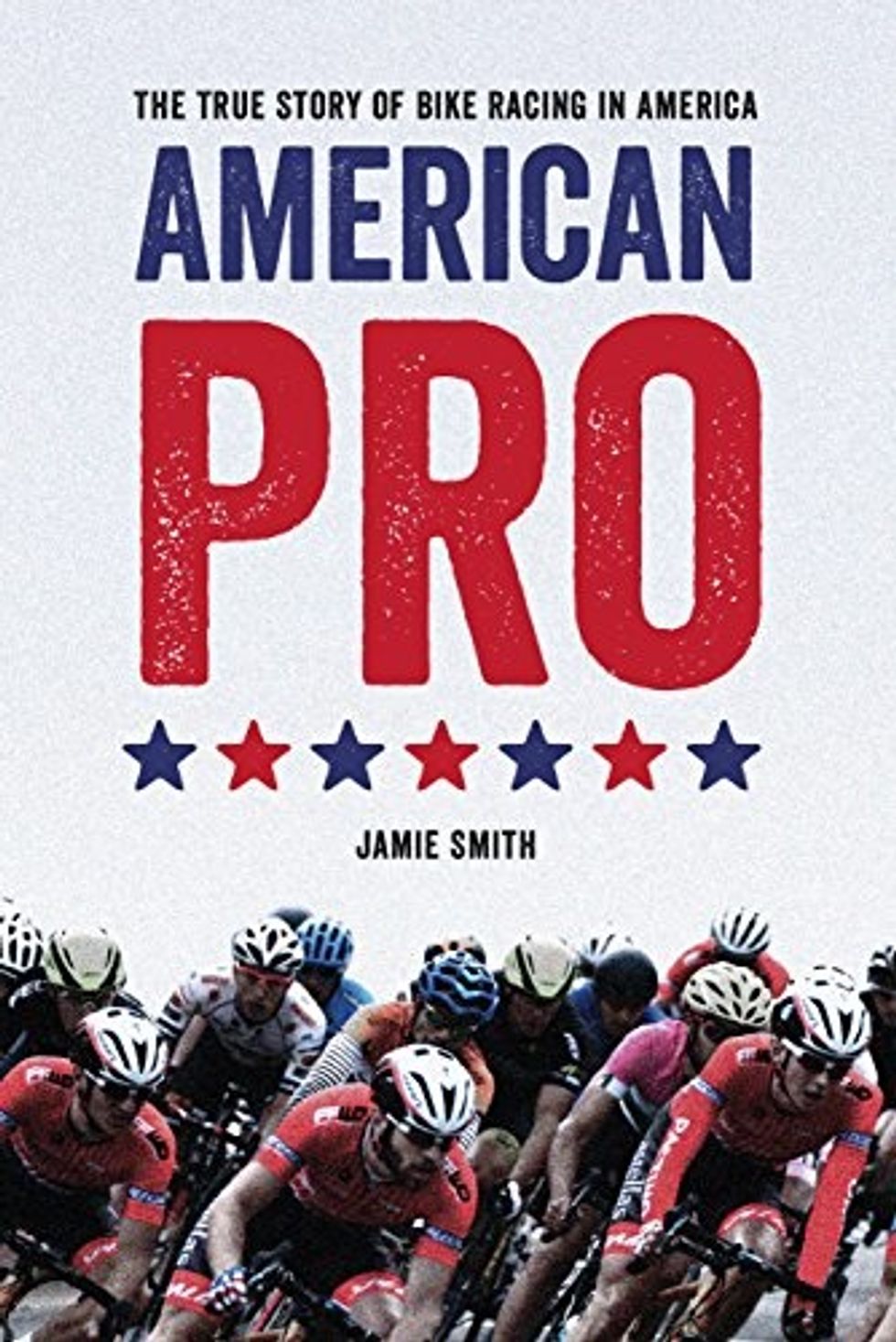
The bicycle has had a resurgence lately. The COVID-19 pandemic has people searching for ways to travel safely, pass time, stay in shape, or all of the above. But even before this bump in sales and interest, bicycling has long been one of the most ubiquitous outdoor activities — whether you grew up in Detroit or on an Amish farm, chances are pretty good you learned to ride a bike.
Given this last point, as a bicycle enthusiast, I've often been confused as to why cycling as a sport never caught on here? Sure, there's a bit of interest during the Tour de France, and most people know the name Lance Armstrong (mostly due to his doping and lying) but, for an activity that nearly everyone takes part in, as a sport it remains niche at best.
Enter American Pro: The True Story of Bike Racing in America. Author Jamie Smith tells the story of bike racing in the U.S. through the eyes of a team that rose from regional ranks to a professional squad. Smith will fill you in on the confusing world of rankings, different types of races, why cycling is such a dangerous sport (spoiler: crashes), and the less-than-glamorous life of young folks who just love to ride fast and up big hills. Smith takes you on cross country trips to races and highlights the physical and emotional toll riders go through in a grueling season. Learn what a crit race is, and the importance of a good soigneur.
This isn't an environmental book, but on a warming planet with too many cars, bicycles are intrinsically tied to any visions of greener futures. This quick read offers a peek into a world of those who obsess and—sometimes even make a living off—one of the most timeless inventions.
Gwen Ranniger’s pick: New York: The Novel, by Edward Rutherfurd
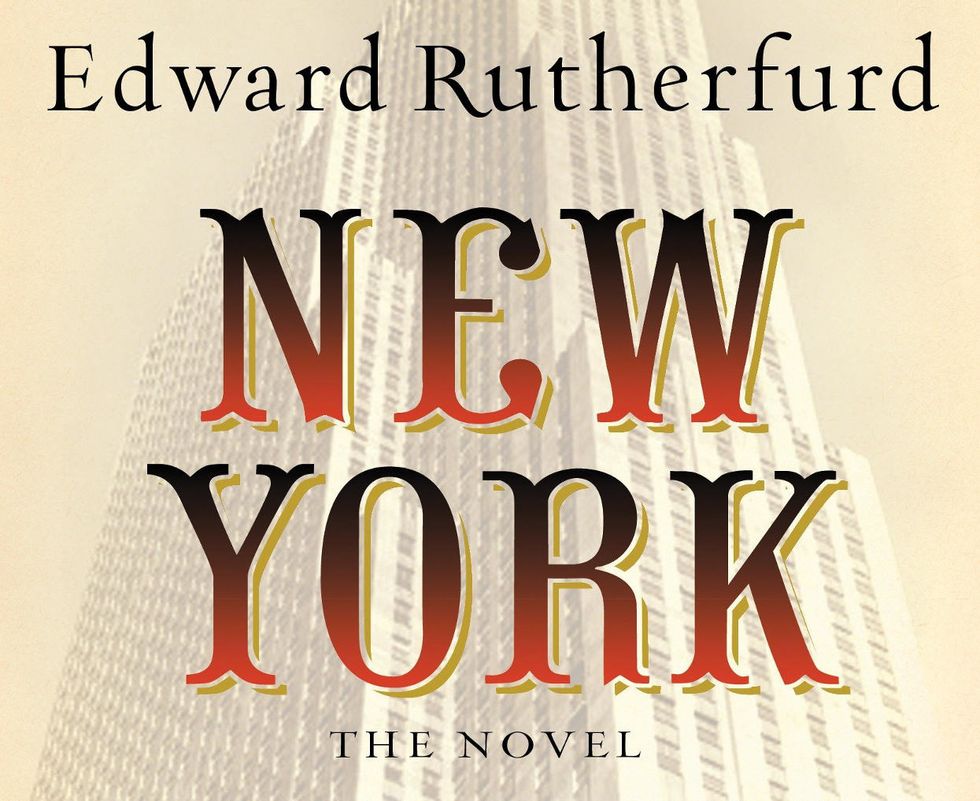
I'm a sucker for historical fiction, and everything Rutherfurd has written has left me enthralled. New York, is, in my opinion, some of the best of his storytelling.
If you're familiar with the author James Michener, Rutherfurd will be right up your alley. The books are fairly lengthy, fictional sagas covering the lives of several different families throughout the generations, running into each other in various ways and creating a complex web of relations that change over the centuries. There's love and war, prosperity and destituteness, generosity and spite: with each new chapter, one craves for broken promises to be mended and luck to be changed, for better or for worse.
New York begins in the origins of the settlement, when the Dutch occupied the area and the main economy was trading for furs with local Native American tribes. From this era the book continues on to the Revolutionary War, the emergence of the city as a great trading and financial center, the upheaval of the Civil War, the Gilded Age, immigration in the late nineteenth and early twentieth centuries, World War II, social unrest in the 1970s and the roaring comeback of the city in the 1990s, and the attacks of 9/11. With each passing generation comes an intimate look at the lives into families (albeit, fictional ones) experiencing New York and its accompanying history. Sure, it's romanticized, but what I love about this book is the opportunity to become more invested in New York's history from a personal standpoint rather than a detached history book perspective.
My favorite section in this novel focuses on the lives of the Caruso family, immigrants from Italy that come to America with the promises of opportunity and face the struggles of a city saturated with new immigrants competing for scarce work for which many are overqualified. This family experiences joy, heartbreak, deceit, despair and jealousy while living cramped in their tenement apartment. Rereading this text in the context of the last few years' immigration upheaval is thought-provoking and demonstrative of the ways in which our country has not adapted or improved over time.
New York was named one of the 2009 Best Books of the Year by the Washington Post and "Required Reading" by the New York Post. My personal opinion: if you like historical fiction, you will love this book and this author. Finally, how does this relate to this book list? The following of the city from a trading post during the Dutch settlement era to the bustling capitalist powerhouse of the 2000s touches on Native American forced migration, unsafe working conditions, pollution in the city, and more. Rutherfurd develops a sweeping, multilayered portrait of the city from its origin to present.
Matt Kayhoe’s picks: The Naturalist (book series) by Andrew Mayne and The Death of Expertise: The Campaign against Established Knowledge and Why it Matters, by Tom Nichols
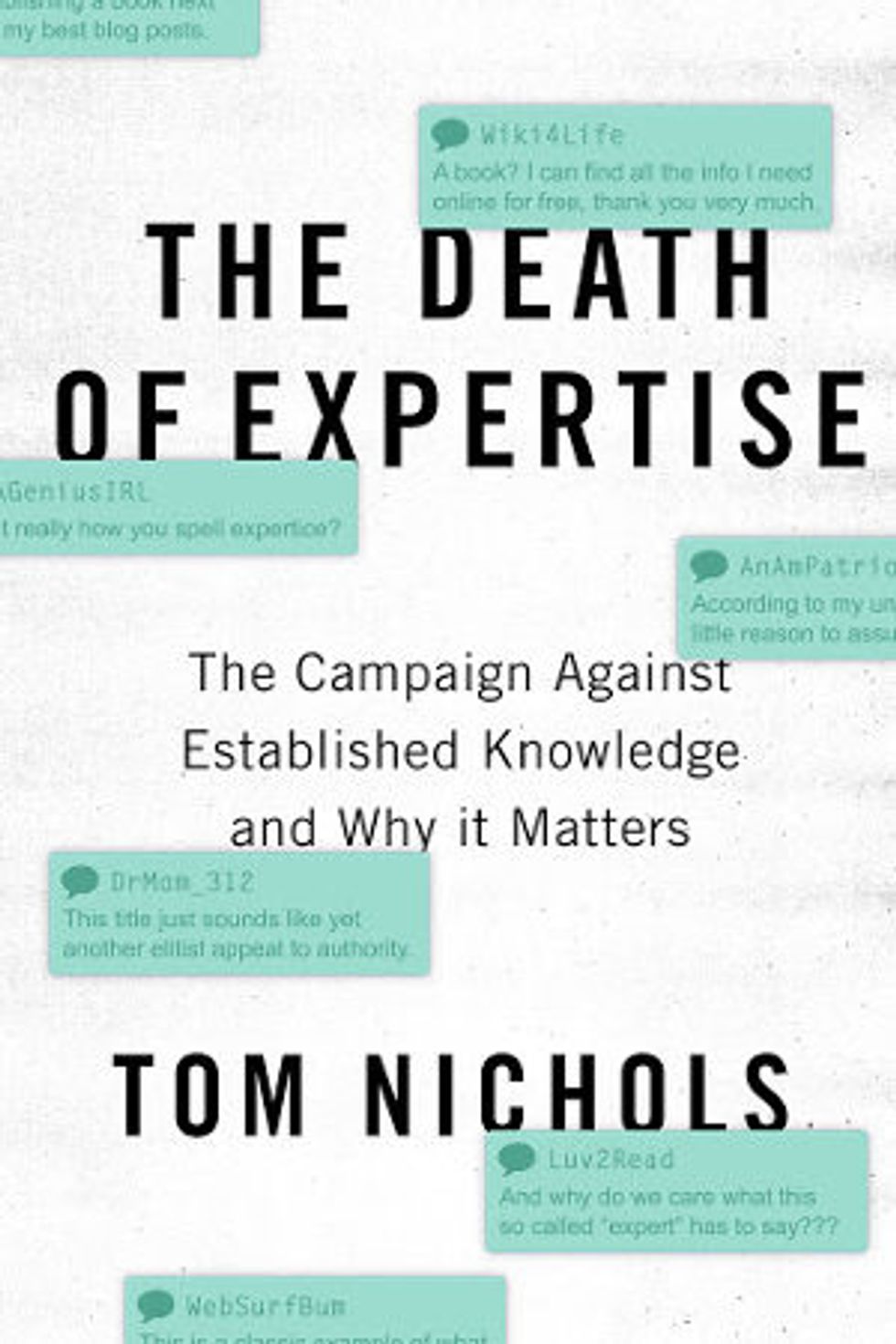
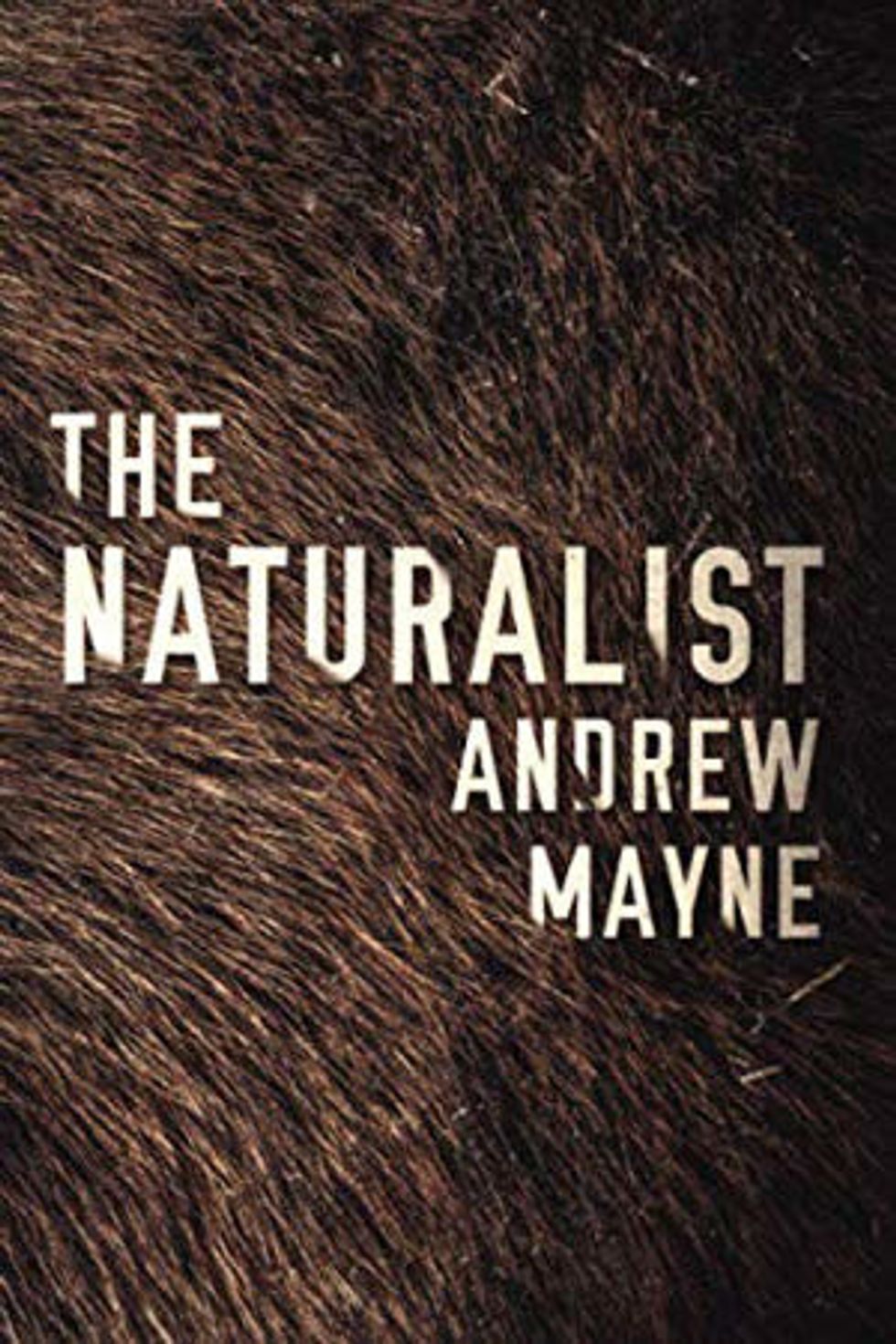
The Naturalist (book series) by Andrew Mayne
For a great break from the problems of the world, but one steeped in science, a fun 4 book series. Our hero, Professor Theo Cray, a biologist who is trained to see patterns where others see chaos, hunts down serial killers while navigating a relationship minefield of his own creation. He's interpersonally challenged, and seemingly unable to deal with authority...in other words, not unlike a lot of us! There's "good vs. evil", romance, science, and more.
Description of Book 1: The Naturalist
When mutilated bodies found deep in the Montana woods leave the cops searching blindly for clues, Professor Theo Cray sees something they missed. Something unnatural. Something only he can stop.
As a computational biologist, Theo is more familiar with digital code and microbes than the dark arts of forensic sleuthing. But a field trip to Montana suddenly lands him in the middle of an investigation into the bloody killing of one of his former students. As more details, and bodies, come to light, the local cops determine that the killer is either a grizzly gone rogue…or Theo himself. Racing to stay one step ahead of the police, Theo must use his scientific acumen to uncover the killer. Will he be able to become as cunning as the predator he hunts—before he becomes its prey?
Technology and increasing levels of education have exposed people to more information than ever before. These societal gains, however, have also helped fuel a surge in narcissistic and misguided intellectual egalitarianism that has crippled informed debates on any number of issues. Today, everyone knows everything: with only a quick trip through WebMD or Wikipedia, average citizens believe themselves to be on an equal intellectual footing with doctors and diplomats. All voices, even the most ridiculous, demand to be taken with equal seriousness, and any claim to the contrary is dismissed as undemocratic elitism.
Tom Nichols' The Death of Expertise shows how this rejection of experts has occurred: the openness of the internet, the emergence of a customer satisfaction model in higher education, and the transformation of the news industry into a 24-hour entertainment machine, among other reasons. Paradoxically, the increasingly democratic dissemination of information, rather than producing an educated public, has instead created an army of ill informed and angry citizens who denounce intellectual achievement. When ordinary citizens believe that no one knows more than anyone else, democratic institutions themselves are in danger of falling either to populism or to technocracy or, in the worst case, a combination of both. An update to the 2017 breakout hit, the paperback edition of The Death of Expertise provides a new foreword to cover the alarming exacerbation of these trends in the aftermath of Donald Trump's election. Judging from events on the ground since it first published, TheDeath of Expertise issues a warning about the stability and survival of modern democracy in the Information Age that is even more important today.Kate S. Petersen’s pick: Our Universe: An Astronomer’s Guide, by Jo Dunkley
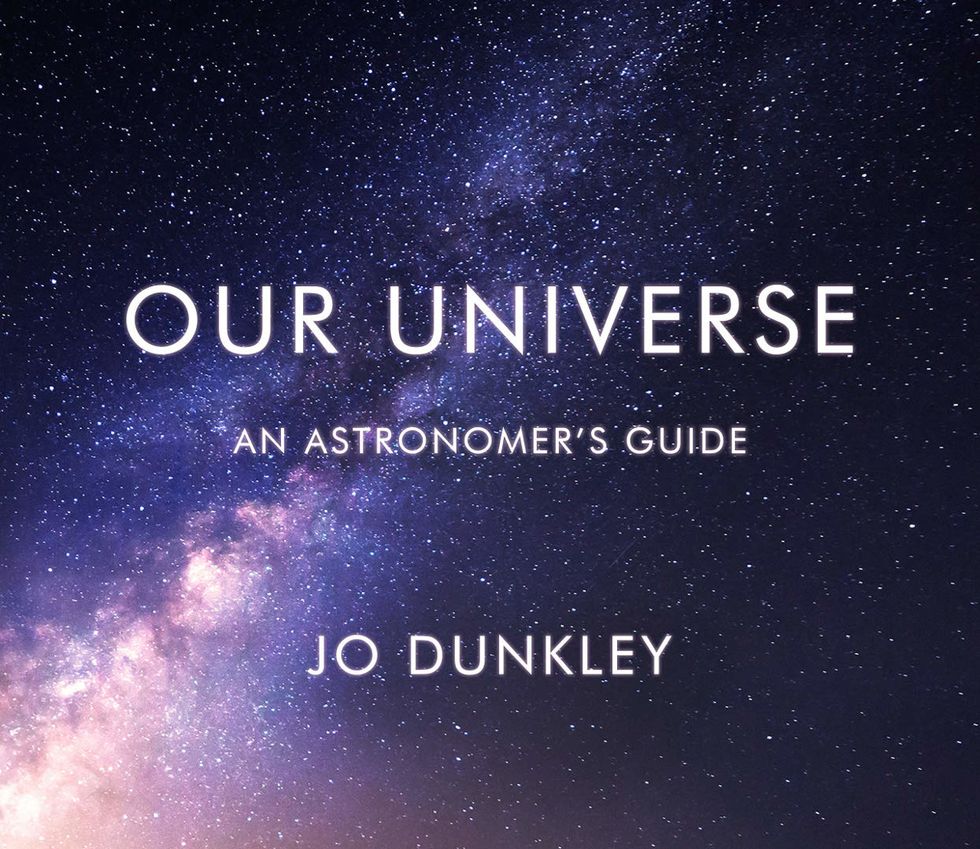
If you'd like a short break from thinking about the biosphere collapsing, I highly recommend this book about space. I read it when I was assigned a communications position at a university planetary sciences department, and I needed someone to quickly explain space to me. Like all of it.
Dunkley, an astrophysicist at Princeton, did this for me. She organizes space from the near to the far, beginning her narrative on Earth, and then expanding outward to the far reaches of the universe. She addresses the classic and non-intuitive space-associated concepts such as multiple universes, the space-time continuum, and the origins of the universe.
She provides historical context for important astronomical discoveries as well as explanations of why astronomers believe what they do and how they gather data. She also highlights the role that women have played in exploring and understanding the cosmos, often triumphing over outrageously unfair circumstances to make pivotal discoveries.
Her prose is excellent and, having read this book, I feel like I really kind of get it about space now.
Jim Germond’s pick: The Lost City of the Monkey God: A True Story, by Douglas Preston
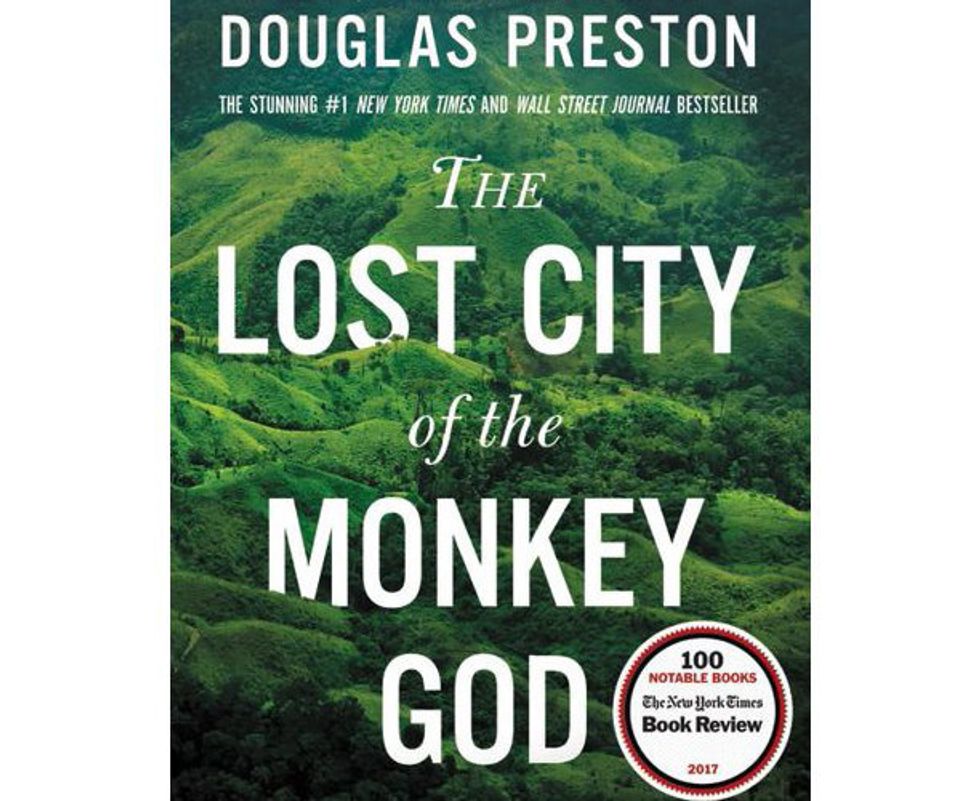
"I would never go back up that river. That's the most dangerous place on the planet, that river." - Bruce Heinicke, Fixer.
Not long after we relocated to Santa Fe, New Mexico, my wife, Liza, handed me a copy of The Lost City of the Monkey God: A True Story, written by local author, Douglas Preston. I found the title slightly off-putting as I'm not a Raiders of the Lost Ark kind of guy. She read the indecision in my face and added reassuringly, "I know what you like."
I thumbed to the first chapter titled: "The Gates of Hell" and scarcely put the book down until I had finished.
It's May of 2015 and Preston is part of a small expedition team preparing to chopper into the heart of Mosquitia, thirty thousand square miles of some of the wildest, dangerous most impenetrable rainforests on Earth. The advancement of lidar— jungle-penetrating radar technology—had three years earlier confirmed the existence of an extensive Pre-Columbian city, believed to be uninhabited and undisturbed for five centuries.
The author had overflown the area with the lidar team in 2012 and at the time noted this dichotomy: "We were flying above a primeval Eden, looking for a lost city using advanced technology to shoot billions of laser beams into a jungle that no human beings had entered for perhaps five hundred years: a twenty-first century assault on an ancient mystery."
On the eve of their 2015 expedition, the logistics chief, a tough-as-nails Brit who goes by Woody, delivers a sobering lecture on the anticipated hazards and threats, starting with a fearsome description of venomous snakes and working his way down through an intimidating array of toxic insects and misery-inducing pathogens. So dire were the warnings that the author concludes that the dangers were being deliberately overstated to inspire fear and instill an overabundance of caution in the intrepid but somewhat green contingent. That notion will be put to rest on the very first night in camp. This jungle was in no mood to give up its secrets.
Preston began his writing career at the American Museum of Natural History and his breadth of scientific knowledge and sensitivity to the planetary issues of the day is expertly woven into the story. Wherever there is scantily protected virgin rainforest, illegal logging, archaeological looting and fast-food patties on the hoof are almost certain to follow and Preston notes often the relentless march of clear-cuts and cattle. Although published in 2017, of particular relevance in this time of COVID-19 is a substantial section on the rising threat of zoonotic diseases along with a surprise appearance by Dr. Anthony Fauci.
The Lost City of the Monkey God is a multi-faceted adventure of the first order. Preston writes with the confident humility of a storyteller at the top of his craft and an adventurer of quiet strength who is not afraid to own his weaknesses and admit his mistakes. I've read the paper version, the Kindle version and have listened to the audio version several times on long trips. I'm still fascinated.Lucy Jakub’s pick: The Edge of the Sea, by Rachel Carson
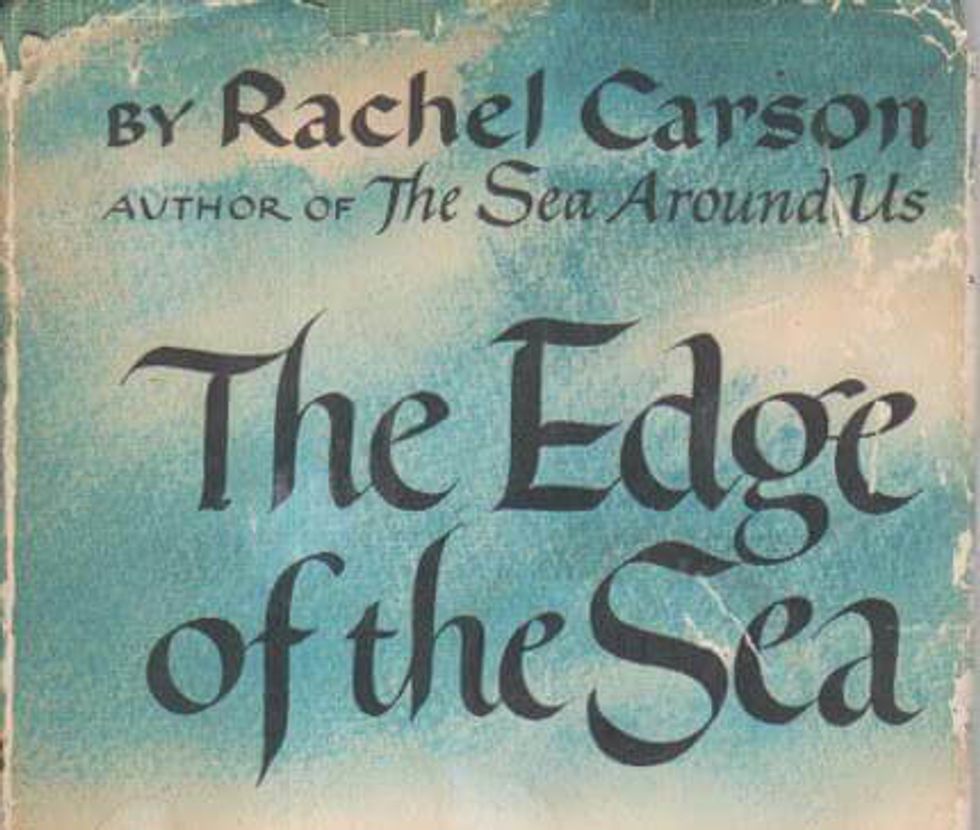
This is a Rachel Carson deep cut. The Edge of the Sea is a guided tour of the biodiversity of the Atlantic coast, from the Florida Keys to the Gulf of Maine. If you've only read Silent Spring, you're missing out on Carson's powers of lush description and her sensitivity for her first love, the sea. Women weren't allowed on research vessels in the 1950s, so the edge was the only part of the ocean she had ready access to as a marine biologist. She bought herself a house on the water in Boothbay Harbor, Maine, and nearly drove herself crazy writing this book, which mentions 150 species, from barnacles to man-of-wars.
She was writing for the well-intentioned literary folks who vacationed on Cape Cod but were blunderingly ignorant of marine life. It's less a guidebook than a lesson in observation: where to look for life when, at first glance, a rock seems barren; how to return, at different times of day, to see different layers of seaweeds revealed by the tide; how to listen for snapping shrimp hidden under the sand. With her descriptions of intertidal species, she makes an evolutionary argument as well. The organisms that live on the shore are not just adapted to the turbulent conditions of their world, but embody one moment in a greater drama of life's transition from the water to land. The ghost crab, for example, lives in the dry upper reaches of the beach but must keep its gills wet with seawater in order to breathe.
Carson carved out a singular niche between science and literature. The Edge of the Sea is a meditation on life at the nexus of two forces—for the periwinkle, the evolutionary pull between the marine and terrestrial realms, and for Carson herself, the two approaches to nature: scientific, and spiritual. It's not exactly a beach read, but if you're stuck far from the shore this summer it's the next best thing to beachcombing, as well as a reminder to look more closely at your own backyard.
Peter Dykstra's pick: Salmon: A Fish, the Earth, and the History of Their Common Fate
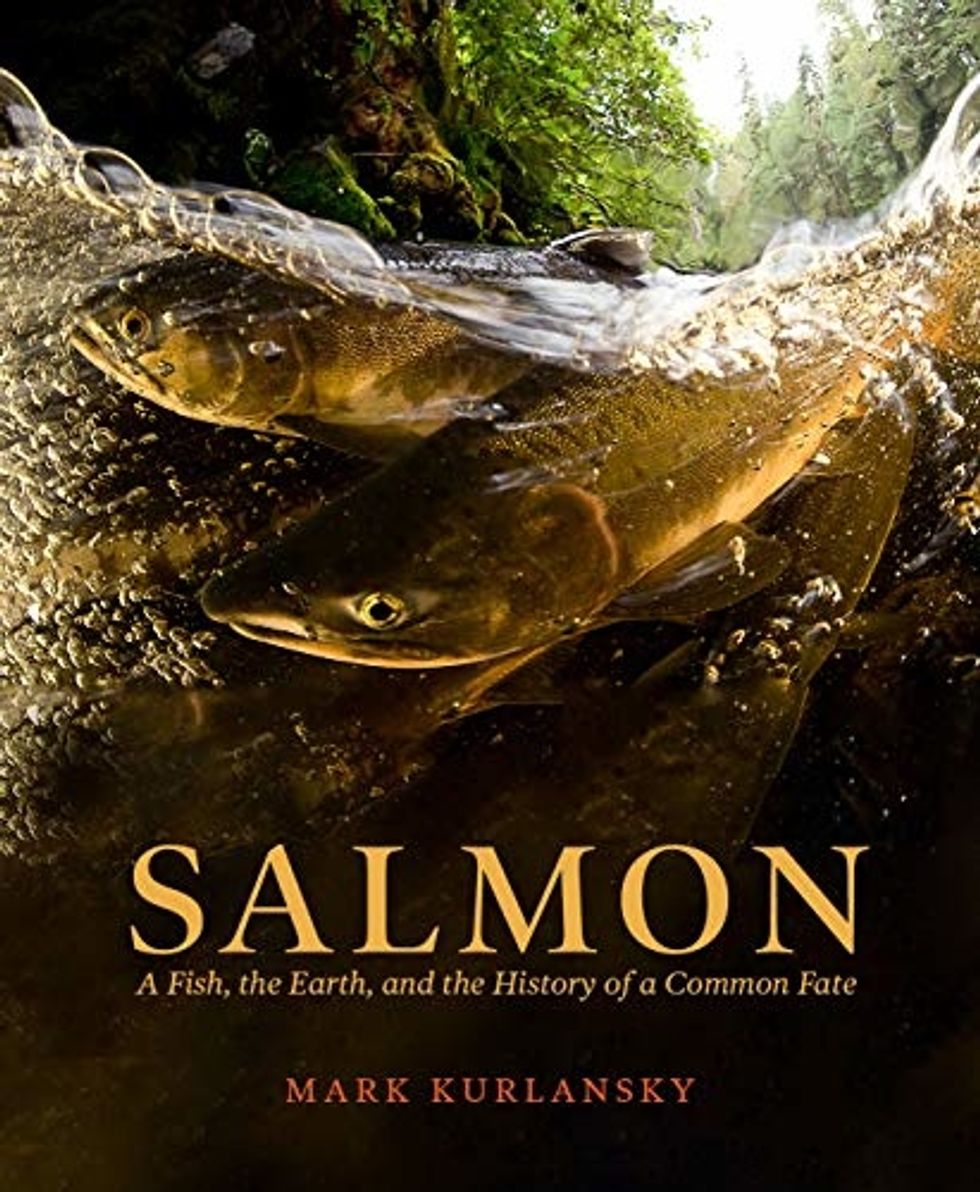
I've procrastinated on reading Mark Kurlansky's Salmon: A Fish, the Earth, and the History of Their Common Fate. I've enjoyed and learned from several previous Kurlansky works on oysters, cod, and salt as a food preservative.
Each book married natural history with his subjects' impacts on human history, and humans' impact on nature: Oysters were actually an economic powerhouse in early New York; salt made it possible to preserve a fish catch over a long voyage; and cod were a major lure in Europe's conquest of North America.
For the foodies, Kurlansky also drops recipes into his history pot. Salmon, in both fresh and saltwater, have helped propel human history, even as humans place these incredible fish in peril.
Do you have summer reading suggestions for us? We'd love to hear from you, email us at feedback@ehn.org.
Banner photo Credit: Amber Karnes/flickr



